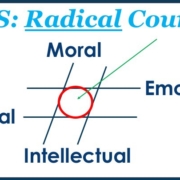In an AI-informed company, the one who knows Why will replace the ones who know How. Here are 5 things you need to know.
Have you experimented with AI chatbots like ChatGPT? If you are like me, you probably were awed by their ability to crank out information, produce analyses, and generate content. After further use, you likely perceived some implicit biases, basic errors, and odd phrases.
AI isn’t perfect, but it’s here to stay. The question for leaders is how to make the most of AI’s extraordinary capacity and limit the downside while inspiring people to contribute their best.
Here are five ways the best leaders will adapt to AI:
- Why Leaders trump How Leaders. To date, subject-matter-expert leaders, what I call How Leaders, dominate most companies. How Leaders have the plans and the expert knowledge to solve problems and direct people what to do. The downside is the dependency they create as employees wait to be told what to do and how to do it.
AI makes How Leaders less relevant, because anyone can tap into generative models for expert answers on any technical skill. Need code for a new program? No problem for AI. Need a manufacturing design? Presto! You get in seconds what might take weeks for an expert to produce.
Why Leaders, on the other hand, provide the questions and guidance that bring out the best in their employees – including their artificial intelligence teammates. Why Leaders become more critical to your organization because of their ability to tap into expertise and direct it toward your company’s common good.
- Strengthening personal interactions. Remote work, powered by AI, makes face-to-face contact more rare and important. AI’s ability to produce deep fakes (AI can replicate your voice in three seconds) can undermine trust between you and your employees. Was I talking to a real person or AI? AI can handle data, my Chatbot writes, but it cannot establish trust.
The most effective leaders make every face-to-face interaction count to build trust and strengthen relationships. Gone are the days when you had so many interactions that a few bad ones got less attention. Now, the stakes for each interaction are higher.
Bring people together for quality personal interactions in extraordinary venues and you will reap the benefits of high trust and increase the capacity of their subordinate leaders to inspire the best contributions of their human and AI employees.
- Fighting Bigotry and Unfairness. AI can expose as well as perpetuate biases and unfairness. My Chatbot writes: According to a 2021 report by the Economic Policy Institute, some companies with significant pay disparities between the CEO and average workers included:
Employees will increasingly see when people are promoted or punished based on their chromosomes, and when CEOs lavish pay on themselves and do little or nothing to support their employees’ livelihoods and professional futures.
The best leaders will exemplify their company’s standards and hire only those likely to buy-in; the hypocrites are at higher risk of exposure and damaging your company.
- Reducing surveillance anxiety. Weak leaders and autocrats will use AI as a surveillance tool to monitor employee compliance. As my Chatbot notes, When employees feel watched, they watch their backs—not their work. The AI-as-Big-Brother kills morale and innovation.
The most effective leaders will use AI to improve future performance. For example, AI can identify skill gaps and address them, offer advice, create systems for setting up your employees for success, and suggest the most productive career pathways.
- Enhancing decision-making. AI can process data, my chatbot tells me, but can’t understand its impact on people. As I’ve found in my time with ChatGPT, the bot is only as good as the guidance I give it. Even the most thoughtful prompts get, at best, a 70 percent solution.
I appreciate the time I save moving from a 50 or 70 percent solution to 80 percent, and not having to start from scratch. At the same time, it’s the critical thinking skills that allow me to provide the quality guidance the chatbot needs to crank out meaningful answers.
The best leaders will develop their subordinates’ critical thinking skills so they can bring out the best in their human and AI teammates. You’ll get better outputs from them and you’ll make better decisions as a result.
What ways do you expect AI to affect your leadership? I would love to hear about it! Email me and let me know.










